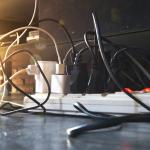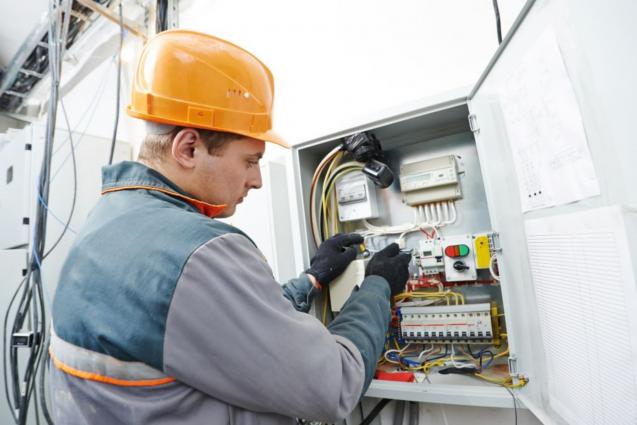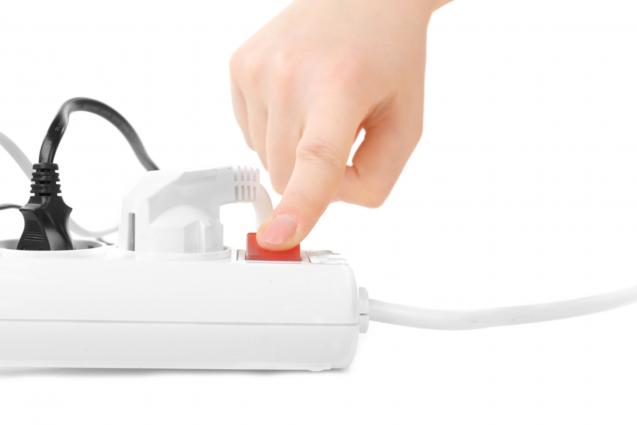
Electrical Emergency Preparedness: Essential Steps to Take
By Captain Cook Electrical|March 24, 2024
Electrical emergencies, including power surges, blackouts or shorts, can occur without a moment's notice. The causes are myriad, ranging from severe weather conditions to system malfunctions or improper handling of electrical devices. The outcome, unfortunately, can be devastating, leading to shocks, fires, or other property damage. Hence, stepping up awareness and readiness for electrical crises is of utmost importance. This article enlightens you on practical steps towards safeguarding your home and family from such threats.
Understanding the Importance of Electrical Emergency Preparedness
Notably, the potential outcomes of electrical emergencies are dire. From electrical fires, which can obliterate properties in seconds, to electrical shocks causing severe injuries or even death. The horrors that can arise from issues such as these highlight the importance of preparedness. A case in point: a family who neglected to tackle a recurring power surge suffered extensive property damage due to the eventual electrical fire.
Essentially, preparedness serves as a sigh of relief, cutting back the damage that could result from electrical faults. Armed with the right tools and knowledge, property damage could be minimized, and human life spared. Who doesn't want that feeling of safety?
Identifying Potential Electrical Hazards in your Home
Proactive identification of potential electrical hazards goes hand in hand with emergency preparedness. Common threats include faulty wiring, misused extension cords, overcrowded outlets, and damaged appliances. Performing a home safety check can help identify these problems. Checking for hot plugs or sockets, frayed cords, or fuses that blow regularly can be lifesaving. Moreover, it is crucial to have a licensed electrician assess the issue, should there be any uncertainties.
Regular electrical maintenance checks play a crucial role in hazard identification, allowing for faults to be addressed before they escalate into full-blown disasters.
Essential Tools and Equipment for Electrical Emergencies
It pays to be well-equipped when dealing with electrical emergencies. Essential tools include high-quality rubber gloves and boots, a fully rated electrical multimeter, pliers, insulated screwdrivers and a flashlight. Each tool has its specific use, such a multimeter can help evaluate whether an object is electrified or not.
As much as owning these tools is significant, their storage is equally important. This equipment should be kept in easily accessible areas. In addition, it's vital to regularly inspect these tools to ensure they are in perfect working condition.
Developing an Electrical Emergency Response Plan
Creating a comprehensive emergency response plan is paramount. Key components should include the list of emergency contacts (including a reliable electrician), the locations of the tools and devices, steps to safely shut off the home's power, and a well-rehearsed evacuation plan if needed.
Everyone living in the house should be consciously active in the plan. Regular review and practice of the responses are necessary to avoid panic when an emergency strikes. Moreover, professional help should be incorporated within the emergency plans to ensure safe handling of the hazards.
Training and Educating Household Members
Accompanying your hardware and plans, everyone in your household must have basic knowledge and skills in managing electrical crises. Topics include electrical safety, handling of tools and equipment, and responses to different electrical emergencies.
Numerous online resources can assist in this crucial education, and it's prudent to regularly update and refresh on safe procedures. Knowledge, indeed, is power in these situations.
Regular Electrical Maintenance Checks
Having regular electrical maintenance checks is not an option, rather, it is essential. This helps keep the electrical systems in check, preventing potential emergencies. However, beyond individual efforts, professional checks are also essential to address any potential underlying issues that may go unnoticed.
Residential electrical maintenance could be faced with challenges such as the difficulty in identifying faulty systems or lack of knowledge in problem-solving. These are reasons to engage professionals in your maintenance routine.
Conclusion
The devastating effects of electrical emergencies call for adequate preparedness in all homes. The stakes are simply too high to neglect this responsibility. It all boils down to the crucial steps of: identifying potential hazards; having essential tools; creating a response plan; training and educating about the scenarios; and conducting regular maintenance checks.
Preparation is empowering and affords you that essential peace of mind. So, take a step today to shield your home and loved ones. Act now – it is never too early to start your Electrical Emergency Preparedness journey.
Understanding the Importance of Electrical Emergency Preparedness
Notably, the potential outcomes of electrical emergencies are dire. From electrical fires, which can obliterate properties in seconds, to electrical shocks causing severe injuries or even death. The horrors that can arise from issues such as these highlight the importance of preparedness. A case in point: a family who neglected to tackle a recurring power surge suffered extensive property damage due to the eventual electrical fire.
Essentially, preparedness serves as a sigh of relief, cutting back the damage that could result from electrical faults. Armed with the right tools and knowledge, property damage could be minimized, and human life spared. Who doesn't want that feeling of safety?
Identifying Potential Electrical Hazards in your Home
Proactive identification of potential electrical hazards goes hand in hand with emergency preparedness. Common threats include faulty wiring, misused extension cords, overcrowded outlets, and damaged appliances. Performing a home safety check can help identify these problems. Checking for hot plugs or sockets, frayed cords, or fuses that blow regularly can be lifesaving. Moreover, it is crucial to have a licensed electrician assess the issue, should there be any uncertainties.
Regular electrical maintenance checks play a crucial role in hazard identification, allowing for faults to be addressed before they escalate into full-blown disasters.
Essential Tools and Equipment for Electrical Emergencies
It pays to be well-equipped when dealing with electrical emergencies. Essential tools include high-quality rubber gloves and boots, a fully rated electrical multimeter, pliers, insulated screwdrivers and a flashlight. Each tool has its specific use, such a multimeter can help evaluate whether an object is electrified or not.
As much as owning these tools is significant, their storage is equally important. This equipment should be kept in easily accessible areas. In addition, it's vital to regularly inspect these tools to ensure they are in perfect working condition.
Developing an Electrical Emergency Response Plan
Creating a comprehensive emergency response plan is paramount. Key components should include the list of emergency contacts (including a reliable electrician), the locations of the tools and devices, steps to safely shut off the home's power, and a well-rehearsed evacuation plan if needed.
Everyone living in the house should be consciously active in the plan. Regular review and practice of the responses are necessary to avoid panic when an emergency strikes. Moreover, professional help should be incorporated within the emergency plans to ensure safe handling of the hazards.
Training and Educating Household Members
Accompanying your hardware and plans, everyone in your household must have basic knowledge and skills in managing electrical crises. Topics include electrical safety, handling of tools and equipment, and responses to different electrical emergencies.
Numerous online resources can assist in this crucial education, and it's prudent to regularly update and refresh on safe procedures. Knowledge, indeed, is power in these situations.
Regular Electrical Maintenance Checks
Having regular electrical maintenance checks is not an option, rather, it is essential. This helps keep the electrical systems in check, preventing potential emergencies. However, beyond individual efforts, professional checks are also essential to address any potential underlying issues that may go unnoticed.
Residential electrical maintenance could be faced with challenges such as the difficulty in identifying faulty systems or lack of knowledge in problem-solving. These are reasons to engage professionals in your maintenance routine.
Conclusion
The devastating effects of electrical emergencies call for adequate preparedness in all homes. The stakes are simply too high to neglect this responsibility. It all boils down to the crucial steps of: identifying potential hazards; having essential tools; creating a response plan; training and educating about the scenarios; and conducting regular maintenance checks.
Preparation is empowering and affords you that essential peace of mind. So, take a step today to shield your home and loved ones. Act now – it is never too early to start your Electrical Emergency Preparedness journey.



